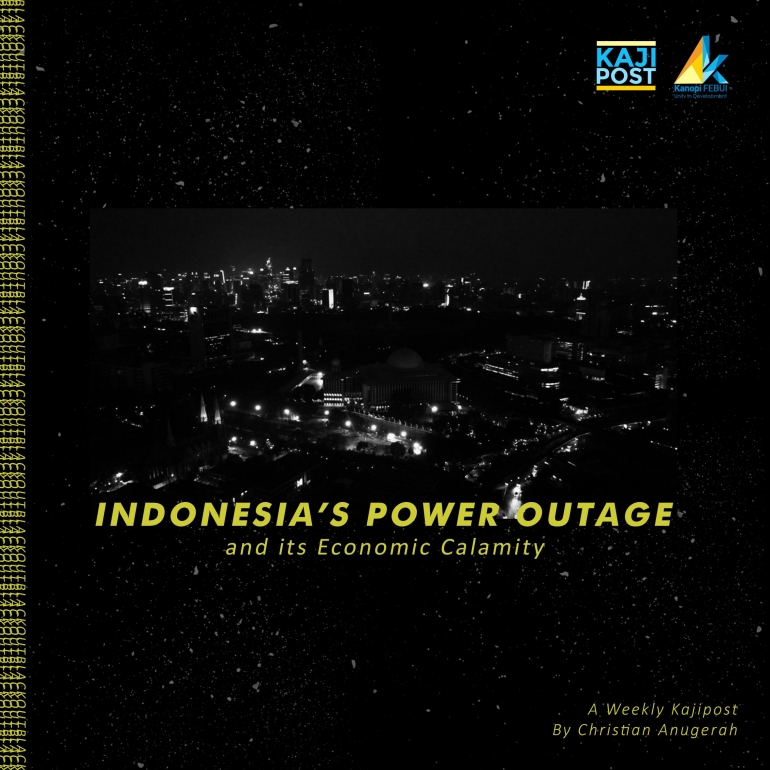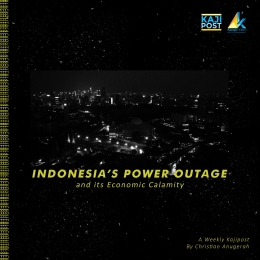However, many people rarely discuss about another solution; opening the electricity market to the private sectors. According to Act 30 Year 2009 Clause 11 regarding electricity (Undang-Undang Republik Indonesia Nomor 30 Tahun 2009), private sectors can provide electricity however it also states that State-Owned Enterprises (in this case PLN) shall be the main priority to be the provider of electricity to the public.
This law becomes the barrier to entry for the private sector to contribute to the provision of electricity for the public, assuming they are capable of building their own power stations to do so. With this law, PLN does not have any incentive to constantly improve their service or monitor to ensure that everything remains perfect. With increased competition from the private sector, PLN can constantly improve their service to maintain its customer satisfaction of their service.
Besides that, this can prevent another blackout since when one of the companies experience problems, other companies can provide backup. This will prevent another mass catastrophe such as what happened a few days ago. Besides, consumers have to pay for the electricity bills instead of being provided for free which correlates to the idea that PLN acts as a profit-minded company. This further justifies the involvement of the private sector and erases the perspective of people regarding private sector being "profit-chasers".
For example, in the United States of America, electric system which consists of generation (production of electricity from primary energy source), transmission (transmitting electricity to substations), and distribution (distributing electricity from substations to consumers) is owned by a mix of entities.
Private sector owns 38% of net generation, 80% of transmission and 50% of distribution while publicly-owned enterprises own 15% of net generation, 12% of transmission, and nearly 50% of the nation's electric distribution lines. With this, the last major blackout ever experienced in USA due to unforced errors was California's 2011 Southwest Blackout in California and Arizona. Thus, the government can consider lowering down the barrier to entry for the private sector to also become the provider of electricity considering there are benefits of actually doing so.
All in all, this catastrophe shall not happen again even in its smallest extent. This calamity had caused a surreal effect on the consumers of electricity since it is a vital element of their lives. Indonesia was fortunate that the blackout only lasted 7 hours last Sunday and a few more hours the following day. If it happened longer than that, the economic effects would be even more abysmal, just like Venezuela.
By Christian Anugrah Leonardo | Ilmu Ekonomi 2018 | Staf Divisi Kajian Kanopi 2019
References
- Bayuni, E. (2019). Let the sun shine on our homes, cut reliance on PLN. [online] The Jakarta Post. [Accessed 9 Aug. 2019].
- Malau, S. (2019). EWI: Menteri ESDM, Wamen ESDM dan Menteri BUMN Pilih Mundur Atau Dipecat - Tribunnews.com. [online] Tribunnews.com. [Accessed 9 Aug. 2019].
- Moylan, J. (2019). Power blackouts 'threat to economy'. [online] BBC News. [Accessed 9 Aug. 2019].
- Pahrevi, D. (2019). Genset di Toko Elektronik Bekasi Laris Manis, sejak Mati Listrik Sudah Terjual 40 Unit Halaman all - Kompas.com. [online] KOMPAS.com. [Accessed 9 Aug. 2019].
- Permadi, A. (2019). Dampak Listrik Padam, Bisnis Potong Rambut di Bandung Rugi hingga 10 Juta. [online] KOMPAS.com. [Accessed 9 Aug. 2019].
- Rakyat, D. (2019). UNDANG-UNDANG REPUBLIK INDONESIA NOMOR 30 TAHUN 2009 TENTANG KETENAGALISTRIKAN. [online] Dpr.go.id. [Accessed 9 Aug. 2019].
- Shuai, M., Chengzhi, W., Shiwen, Y., Hao, G., Jufang, Y. and Hui, H. (2018). Review on Economic Loss Assessment of Power Outages. Procedia Computer Science, 130, pp.1158-116
- Ali, M. (2005). Indonesia's Java, Bali suffer big power outage. [online] The Star Online. [Accessed 9 Aug. 2019].3.
- Corporation, N. (2011). September 2011 Southwest Blackout Event. [online] Nerc.com. [Accessed 9 Aug. 2019].
- Energy, D. (2019). Electricity 101. [online] Energy.gov. [Accessed 9 Aug. 2019].










